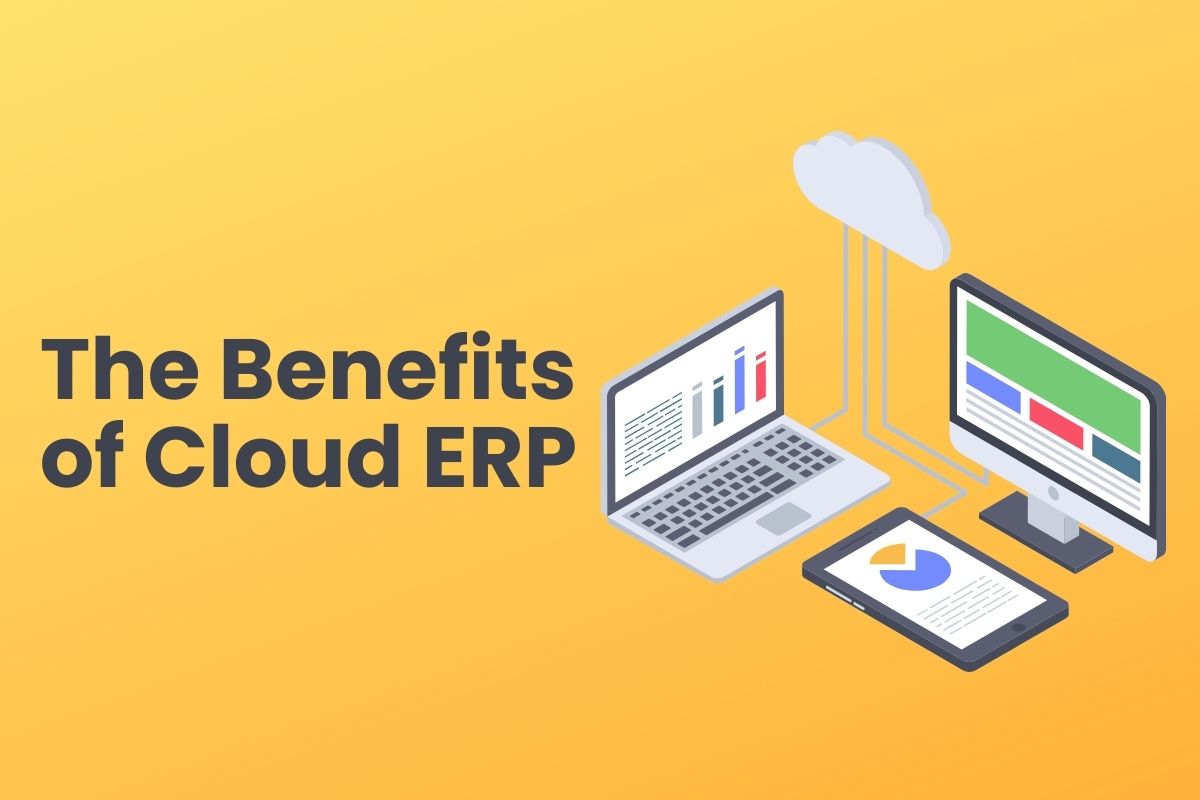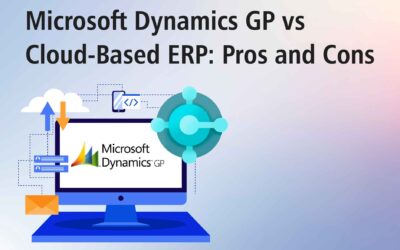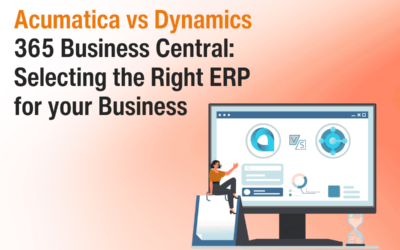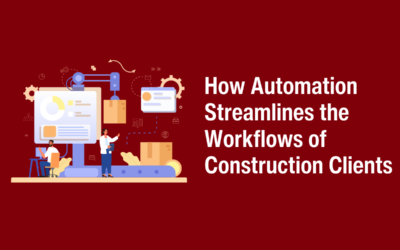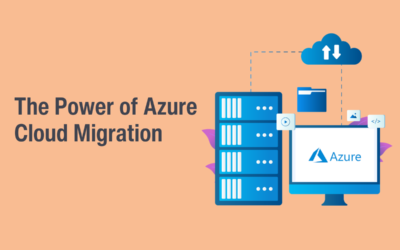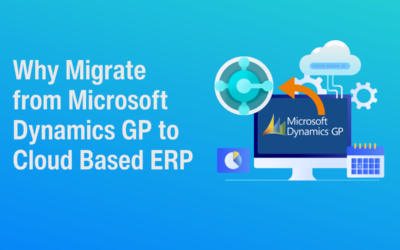Discover the transformative benefits of cloud ERP solutions, streamlining operations, enhancing flexibility, and reducing costs for modern businesses.
Key Takeaways
- Cost-Effective: Lower upfront costs and predictable monthly expenses.
- Scalable: Easily adjust resources as your business grows.
- Accessible: Work from anywhere, enhancing remote collaboration.
- Rapid Deployment: Faster implementation compared to traditional ERP.
- Automatic Updates: Regular updates ensure the latest technology and security.
- Improved Security: Robust security measures from leading providers.
- Disaster Recovery: Strong recovery plans ensure data safety.
- Integration: Seamless integration with other business applications.
- Enhanced Collaboration: Real-time data access improves decision-making.
- Focus on Core Activities: Outsource ERP management to focus on strategic initiatives.
What are the benefits of online cloud ERP solutions?
Online cloud ERP solutions offer cost savings, scalability, accessibility, rapid deployment, automatic updates, improved security, disaster recovery, integration capabilities, enhanced collaboration, and allow businesses to focus on core activities.
Businesses that rely on outdated systems or traditional on-premises ERP solutions often face numerous challenges that hinder growth and efficiency.
Manual processes can lead to errors and inefficiencies, while limited scalability restricts the ability to adapt to market changes. Additionally, maintaining and updating on-premises infrastructure requires significant time and resources, diverting focus from core business activities.
In this context, the adoption of cloud-based ERP solutions has emerged as a transformative approach. These systems streamline operations, enhance flexibility, and offer a cost-effective alternative to traditional ERP, making them an increasingly popular choice for modern enterprises.
Throughout this blog post we will be exploring the benefits of online cloud ERP solutions, their deployment types, and why they are becoming the preferred choice for modern enterprises.
What is Cloud ERP?
Cloud ERP (Enterprise Resource Planning) refers to a suite of integrated applications that businesses use to manage and automate core functions like finance, human resources, manufacturing, supply chain, services, procurement, and others, all hosted on cloud computing platforms.
Unlike traditional ERP systems that are hosted on a company’s own servers and infrastructure, cloud ERP solutions are hosted on the servers of a cloud service provider and accessed via the internet.
The key characteristic of cloud ERP is that it leverages cloud computing technology to provide scalable, flexible, and cost-effective solutions. This means businesses can access their ERP system from anywhere, at any time, without the need for heavy IT infrastructure investments.
Types of Cloud ERP deployment
When considering cloud ERP, it’s important to understand the different deployment models available:
Public Cloud
Public cloud ERP is hosted on a shared infrastructure provided by a third-party vendor. Resources such as storage and servers are shared among multiple organisations, although each company’s data and applications remain isolated.
Why Use It: Ideal for small to medium-sized businesses looking for cost-effective solutions with quick deployment and minimal maintenance.
Private Cloud
Private cloud ERP is hosted on a dedicated infrastructure tailored to a single organisation. It can be managed internally or by a third-party service provider.
Why Use It: Suited for larger enterprises requiring enhanced security, compliance, and customisation capabilities.
Hybrid Cloud
Hybrid cloud ERP combines elements of both public and private clouds, allowing data and applications to be shared between them.
Why Use It: Offers the flexibility to maintain sensitive data on a private cloud while leveraging the public cloud for less critical operations and scalability.
While each deployment model has its advantages, public cloud ERP solutions are most commonly used due to their cost-effectiveness, ease of use, and rapid deployment capabilities.
Transform Your Business with Cloud ERP
Experience the benefits of cloud ERP solutions. Improve efficiency, scalability, and data accessibility.
Why choose the cloud?
Adopting cloud ERP solutions enables businesses to leverage advanced technologies without the need for significant capital expenditure on IT infrastructure. This model supports scalability, ensuring that the system grows with the business, and offers unparalleled accessibility, allowing teams to work from anywhere with an internet connection.
Cloud vs On-premises
|
Metric |
Cloud ERP |
On-Premises ERP |
|
Cost |
Lower upfront costs, flexible payment model |
High initial investment, ongoing maintenance |
|
Scalability |
Easily scalable |
Limited by physical hardware |
|
Deployment Time |
Typically faster implementation |
Typically longer implementation |
|
Maintenance |
Managed by cloud service provider |
Requires in-house IT staff |
|
Accessibility |
Accessible from any device with an internet connection |
Limited to on-site or VPN access |
|
Updates |
Automatic and frequent |
Manually controlled |
|
Security |
High, but dependent on provider |
High, controlled internally |
|
Customisation |
Can be limited by provider |
Highly customisable |
The 10 top benefits of implementing a cloud ERP solution
- Cost Savings: Cloud ERP eliminates the need for significant upfront investment in hardware and IT infrastructure. The subscription-based pricing model allows for predictable monthly expenses.
- Scalability: Easily adjust resources and functionalities as your business grows, without the need for significant hardware investments.
- Accessibility: Work from anywhere with an internet connection, facilitating remote work and enhancing collaboration across geographies.
- Rapid Deployment: Cloud ERP systems can be deployed much faster than traditional on-premises solutions, reducing the time to value.
- Automatic Updates: Regular updates and new features are automatically implemented by the service provider, ensuring that your system is always up-to-date with the latest technologies and security patches.
- Improved Security: Leading cloud ERP providers invest heavily in security measures, often exceeding what most businesses can afford on their own.
- Disaster Recovery: Cloud ERP solutions typically include robust disaster recovery and business continuity plans, ensuring data is backed up and can be recovered quickly.
- Integration Capabilities: Cloud ERP systems often come with built-in integrations for various business applications, streamlining operations and data flow across the organisation.
- Enhanced Collaboration: With centralised data accessible in real-time, teams can collaborate more effectively, making informed decisions based on up-to-date information.
- Focus on Core Business: By outsourcing the management of the ERP system to a cloud provider, businesses can focus more on their core activities and strategic initiatives.
Are there disadvantages to cloud ERP?
While cloud ERP solutions offer numerous benefits, they are not without potential drawbacks. These can include concerns about data security and privacy, dependence on internet connectivity, and potential limitations in customisation compared to on-premises solutions.
However, many of these issues can be mitigated through careful planning and choosing a reputable service provider with strong security protocols and a proven track record.
Which Cloud ERP solution should I choose?
Choosing the right cloud ERP solution depends on your business’s specific needs, size, and industry. There are a number of powerful ERP solutions available on the market, however, one solution that stands out is Microsoft Dynamics 365.
This platform offers a comprehensive suite of ERP and CRM applications that integrate seamlessly, providing a unified solution for managing finances, operations, sales, and customer service.
Why Microsoft Dynamics 365?
- Versatility: It caters to businesses of all sizes and industries, offering tailored solutions and licensing models that address specific business needs.
- Integration: Seamlessly integrates with other Microsoft products, such as Office 365, Teams, and Azure, enhancing productivity and operational efficiency.
- Scalability: Easily scalable to grow with your business, ensuring you only pay for what you need.
- User-Friendly: Intuitive interface and user experience, reducing the learning curve and improving adoption rates.
- Advanced Analytics: Built-in AI and analytics tools reduce time consuming manual tasks and provide deep insights into business performance, helping drive informed decision-making.
Implementing a cloud ERP solution can significantly transform how your business operates, offering numerous benefits that drive efficiency, reduce costs, and enhance decision-making.
By carefully considering your deployment options and choosing a robust solution like Microsoft Dynamics 365, you can ensure your business is well-positioned for growth and success in the digital age.
If you’d like to know more about Dynamics 365 or see first-hand how the solution can transform your business operations, please leave your details in the contact form below and one of our expert team members will soon be in touch.

